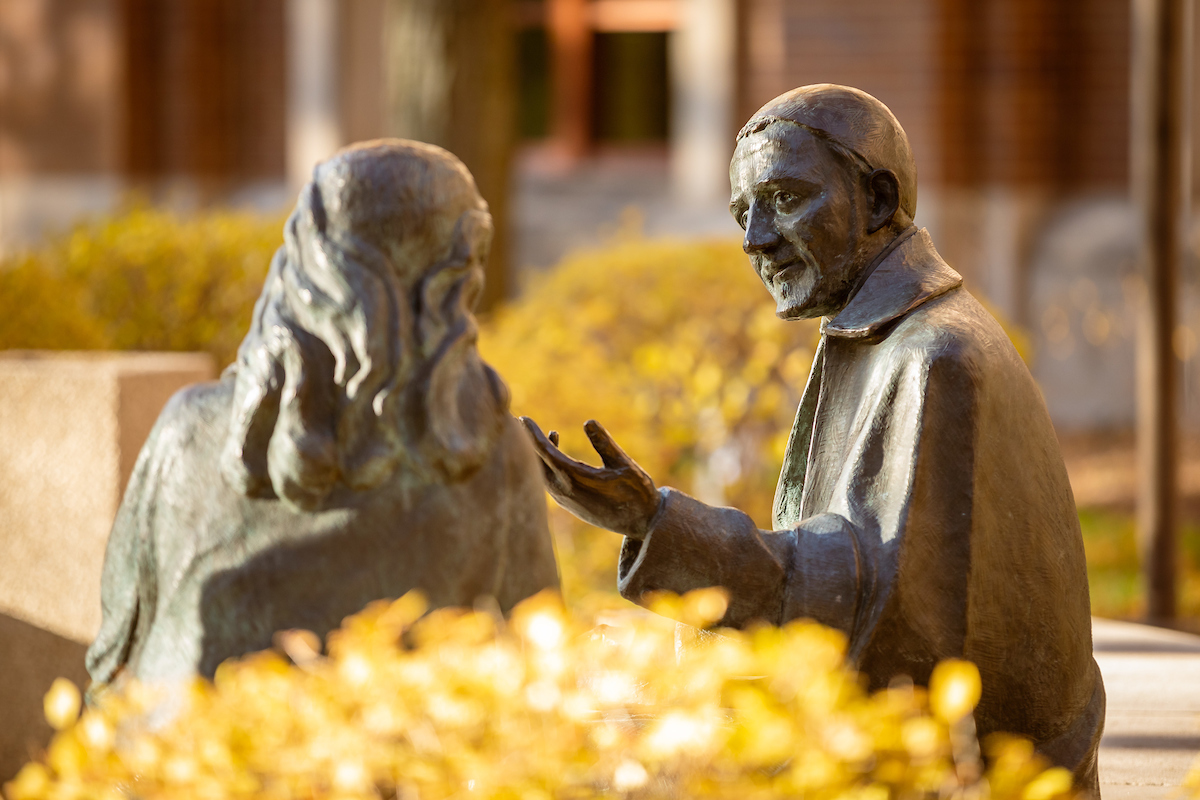 (DePaul University/Jeff Carrion)
(DePaul University/Jeff Carrion)
Today we are witness to an alarming rise in incidents of verbal and physical harassment of Jews, intensified by the recent violent conflict in the Middle East.
Tisha B'Av, observed this year on July 17-18, is a day of mourning to commemorate the many tragedies that have befallen the Jewish people, many of which coincidentally occurred on the ninth of the Jewish month of Av. And so today, we pause to state plainly that such acts of direct or indirect, explicit or coded antisemitism are reprehensible and unacceptable. They must be called out and stopped. We must reframe our frustration into compassion, and focus our energies on solving problems together.
The
Jerusalem Declaration on Antisemitism, signed by more than 200 scholars and one of many resources on antisemitism available, can be helpful in identifying antisemitic acts and speech. Here are some examples: making “sweeping negative generalizations about a given population" or promulgating “the idea of a Jewish conspiracy." Other forms of antisemitism include “denying or minimizing the Holocaust," manifesting antisemitism in “words, visual images, and deeds," and more. All of these acts of antisemitism are unacceptable.
The common thread among us is our shared humanity. Our religion, race, gender, country of origin or any other aspect of our identities must not be used to divide us or as a reason for discrimination. We are all human beings, made in the image of God. Inherent in each of us is our human dignity and the capacity to do good. Let us show the world that religious pluralism is a strength, and that we respect every human life. In Vincentian terms, we must love thy neighbor as thyself (Matthew 22:37-39), even across political and policy divides. It sounds simple, yet it is difficult to actualize. In our university context, we must manifest this concept by modeling, and insisting upon, civil discourse in classrooms and everywhere we come together to learn from one another.
If you need assistance in determining what that means, or have tried to advocate for civil discourse in the moment without success, please seek guidance. For students this could include speaking to their faculty or academic department, the Dean of Students Office, staff in the Identity Centers or Mission and Ministry. Faculty and staff can seek support from their managers, Office of Institutional Diversity and Equity, and Human Resources to name a few options.
According to our mission statement, as a community, “we recognize the intrinsic ethical connection between dignity and diversity as a natural and necessary context for human flourishing, and thus we strive to be a welcoming and inclusive educational community that cultivates these important values among ALL persons at DePaul."
Let us stand together against antisemitism and against all forms of discrimination, prejudice, hostility or violence against any members of our community.